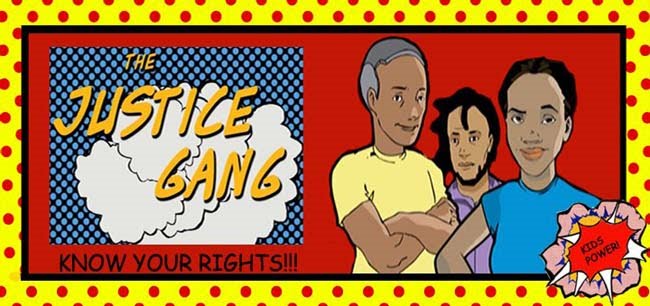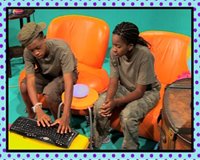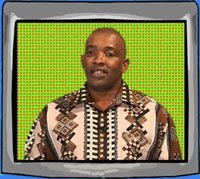Today we're finding about something that affects all teenagers, and something that I'll bet you never expected to be one of your rights. I'm talking about the Right to have a Bad Hair Day. That might sound like something not so important, but let's take a closer look at what this means.
 Every day we are bombarded with images of perfect people with perfect skin and perfect hair. Just look at all the models in magazines and all the film stars! Let’s face it we are under a lot of pressure to look beautiful all the time! This effects girls a lot but boys are under pressure too. Think about all the men in the adverts with their perfect muscles and perfect hair. It makes boys feel like they're supposed to look like bodybuilders.
Every day we are bombarded with images of perfect people with perfect skin and perfect hair. Just look at all the models in magazines and all the film stars! Let’s face it we are under a lot of pressure to look beautiful all the time! This effects girls a lot but boys are under pressure too. Think about all the men in the adverts with their perfect muscles and perfect hair. It makes boys feel like they're supposed to look like bodybuilders.Why is it so important to look a certain way? Why can’t we all just accept ourselves the way we are and be happy? And what makes this a children’s rights issue exactly?
Here's an email someone sent us:
My name is Catherine and I am 14 years old. I’m pretty OK with the way I look, but all my friends ever seem to talk about is how unhappy they are with their hair, their weight, the length of their legs and so on and so on. There’s a lot of pressure to look a certain way. What I want to know is who decides who is beautiful and who isn’t? And more importantly, don’t I have the right to a bad-hair day now and again?
Catherine brings up a VERY interesting question. What does “beautiful” mean anyway, and who decides whose beautiful and whose not? Gugu and I did some research to find out more and this is what we discovered.
Did you know that blue hair was all the rage in ancient Egypt? Or that having a corncob shaped head was the ultimate sign of beauty in Mayan societies? Mayan parents used to strap their babies heads to two boards so that the skull would be elongated. What a price to pay for beauty! As hard as it may be to imagine, ideas about what makes a person beautiful differ from country to country and have changed a lot over time. Take a look at this historical time line which shows how ideals of beauty have changed in the western world over the past two hundred years.
1800 – Small, thin bodies are in, as is ghostly white skin. Women wore tightly laced corsets to achieve the smallest possible waists; their stomachs and lungs were so compressed they could hardly eat or breathe. Some women even had ribs removed so they can lace their corsets tighter. Fainting spells were common.
 1860’s – Plump women with large hips come into fashion. A little extra weight is considered a sign of prosperity, and proof that you are a nice person. Thin women are considered mean and sour.
1860’s – Plump women with large hips come into fashion. A little extra weight is considered a sign of prosperity, and proof that you are a nice person. Thin women are considered mean and sour.1920’s – the ‘Flapper” look is in style. Women bind their breasts to achieve a slimmer, sportier, more boyish look. Skirts get shorter and dieting becomes a popular pastime.
 1930’s – The Great Depression and World War II gave women more serious concerns than the numbers on their bathroom scale. A more full-figured look is in.
1930’s – The Great Depression and World War II gave women more serious concerns than the numbers on their bathroom scale. A more full-figured look is in.1950’s – Marilyn Monroe frenzy leads three out of 10 brunettes to dye their hair blond. Womanly curves and beehive hairdo’s are definitely in!
1966: The miniskirt arrives, made popular by an underweight 17 year old fashion model, Twiggy who was 168cms and weighed just 40 kg’s.
 1974: A black model appears on the cover of Vogue magazine for the very first time.
1974: A black model appears on the cover of Vogue magazine for the very first time. 1990’s – the supermodel look comes into fashion - models with sickly, bone-thin bodies are the norm. The US Centre for Disease Control estimated that 11 million women have eating disorders.
1990’s – the supermodel look comes into fashion - models with sickly, bone-thin bodies are the norm. The US Centre for Disease Control estimated that 11 million women have eating disorders.2000’s – Cosmetic surgery including liposuction, nose jobs and breast implants become increasingly popular with young women. One Third of girls ages 12-14 say they would like to have cosmetic surgery to correct something they don’t like about themselves.
 Meanwhile in Africa, things are a little different. In many parts of Africa thin means poverty and fat means wealth. In large parts of Africa, women are fattened up as much as possible before marriage. In south-eastern Nigeria, girls are kept in "fattening rooms" for weeks, prevented from exerting themselves and given high-protein food. In southern Niger, girls take appetite-enhancing pills and drink excessive amounts of water. In Mauritania, their ankles are bound to increase water retention as they are fed huge quantities of sweetened goat's cream.
Meanwhile in Africa, things are a little different. In many parts of Africa thin means poverty and fat means wealth. In large parts of Africa, women are fattened up as much as possible before marriage. In south-eastern Nigeria, girls are kept in "fattening rooms" for weeks, prevented from exerting themselves and given high-protein food. In southern Niger, girls take appetite-enhancing pills and drink excessive amounts of water. In Mauritania, their ankles are bound to increase water retention as they are fed huge quantities of sweetened goat's cream.This just goes to show that ideals of beauty can be very different depending on where you are from.
Our research showed just how crazy the things people do to fit the image of “perfect beauty.”
Sadly, Africans are now adopting the Hollywood idea of beauty. Most of the TV we watch and many of the magazines we buy are made in North America. Many young women try to look like these models even if they do not have the same body type. If you put all your energy into trying to achieve the body you weren’t meant to have, then your self-esteem can suffer. This is one of the reasons why young girls can be so susceptible to eating disorders.
Definition: An eating disorder is a compulsion to eat, or avoid eating, that negatively affects your physical and mental health. Examples of eating disorders are:
Anorexia – starving yourself to keep body weight abnormally low.
Bulimia: Eating large quantities of food and then vomiting it up, to keep your body weight abnormally low.
Here's something you can do, not to caught up in the Hollywood idea of beauty, and to improve your self-esteem:
Most of the ads we see of beautiful perfect people are in fact digitally altered to make them perfect, so consider throwing out all the fashion magazines that made you feel bad.
You can write letters to the companies that produce adverts that made us feel bad about ourselves. Ask them why they didn’t use more normal looking people in their ads. Also write letters to the magazines that print the ads. Even if nothing changes, you will feel empowered by having your say!
 Now think - who is in charge of our self-esteem anyway: the mass media or us? We are of course! Make a list of the 10 things you like best about yourself. Then make a list of 10 wonderful things that your body allows you to enjoy. Riding a bike, dancing, climbing a tree. The more you focus on how amazing your body is for allowing you to do all these things, the less you'll focus on what your body looks like.
Now think - who is in charge of our self-esteem anyway: the mass media or us? We are of course! Make a list of the 10 things you like best about yourself. Then make a list of 10 wonderful things that your body allows you to enjoy. Riding a bike, dancing, climbing a tree. The more you focus on how amazing your body is for allowing you to do all these things, the less you'll focus on what your body looks like.You only have one life to live, so why waste it worrying about how fat your thighs are or how to achieve that perfect complexion? There is more to life than thinner thighs. The most important thing is to start loving yourself from the inside out. This means not putting your looks down at any time. Never forget that you are wonderful all around, from the inside out.
 If you hate looking at yourself in the mirror try some of these pointers:
If you hate looking at yourself in the mirror try some of these pointers:Do something nice for yourself every day.
Find things that make you feel good about yourself that don’t involve buying some product. Maybe it’s doing a friends hair or running, taking a walk, or playing a musical instrument.
When you look at yourself in the mirror, practice being kind to yourself. Tell yourself what about you looks great and strong. Keep the negative voices out your head.
Surround yourself with people who are supportive
This doesn't mean that you shouldn't read magazines or put on nail polish or dye your hair or dress up. But when you do, remember that you do not have to measure up to someone else’s idea of beauty. Just have fun expressing yourself.
That's it for now, don't forget to write to us with your comments or questions

Bye
Sfiso




























